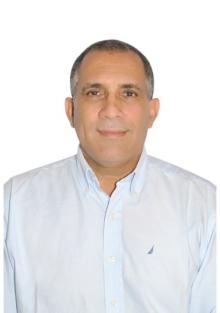
The 2019 recipient of the Statistical Society of Canada Award for Impact of Applied and Collaborative Work is Belkacem Abdous, professor at the Department of Preventive and Social Medicine, Université Laval until 2017 and currently Director of the National Institute of Statistics and Applied Economics (INSEA), Rabat, Morocco. The award recognizes outstanding contributions by a member of the SSC in collaborative research and applied work, the importance of which derives primarily from its relatively recent impact on a subject area outside of the statistical sciences, on an area of application, or on an organization.
Belkacem was born in Mestegmer, Morocco. He studied Applied Mathematics at Université de Lille (MSc and Doctorate 3eme cycle), completing his PhD thesis in 1989 under the supervision of Professor Radu Theodorescu at Université Laval. After a brief time at Université de Moncton he joined Université de Québec à Trois-Rivières, where he rose to full professor. He then moved to the Department of Preventive and Social Medicine at Université Laval. Simultaneously, he was very involved with the Modelling and Simulation Laboratory in Morocco. In the fall of 2018 he was appointed as the Director of the National Institute of Statistics and Applied Economics (INSEA), Rabat, Morocco.
Throughout his academic career, Belkacem has carried out research in statistics, biostatistics and epidemiology. He has played an important role in many team research projects and is actively involved in the production of official statistics in Morocco, together with various national and international statistical activities and projects. Belkacem is a member of the Centre de recherches mathématiques, the Statistical Society of Canada, the Institute of Mathematical Statistics and the International Statistical Institute. His work has been supported directly by NSERC. Belkacem has supervised nine doctoral students and 14 MSc students. The excellence of his collaborative work was recognized with the Best Paper in The Canadian Journal of Statistics in 2004 with Ghoudi and Remillard. He has also done extensive consulting work for the Institut national de santé publique du Québec.
His current research is in the field of climate change, population health and official statistics. He played an essential role in developing tools to help government agencies, such as the Institut National de Santé Publique du Québec, monitor and support research on the relation between public health and climate changes. For example, in the case of adaptation to heat in urban settings, the large number of behaviours that can be adopted greatly complicates the monitoring of the evolution of preventive actions taken by individuals to counter the effects of the heat. Belkacem’s work regarding semiparametric estimators for a count regression function (e.g., the penalized MMLE and Kernel smoothing forthe non-parametric estimation of items) was essential for performing psychometric analyses and thus developing valid heat adaptation indices that are comparable over time and between countries. More specifically, he has successfully adapted these estimation methods to the field of climate change and population health. This has made it possible to develop valid climate change adaptation indices (heat, flooding, pollen, Lyme disease) as well as to reduce the size of a set of behavioural indicators without losing the underlying base information.
As chair of the local program committee and a member of the scientific program committee, Belkacem oversaw the local organization of the 61st World Statistics Congress in July 2017 in Marrakech. With respect to this he received an ISI Service award for outstanding and dedicated leadership and service as local program committee chair, ISI 2017, 61st WSC. Most recently he has co-chaired the High-level Group for Partnership, Coordination and Capacity-Building for statistics for the 2030 Agenda for Sustainable Development, United Nations Statistics Division.
Belkacem, with his wife Nadia, divides his time between Rabat, Morocco and Québec city. He has two adult children who have earned undergraduate and graduate degrees in accounting and computer science.
“To Belkacem Abdous, for his outstanding contribution for promoting innovative statistical methodologies in population health and impacts of climate changes, for the promotion of Statistical Sciences in developing countries, and for his excellent contribution to the training of graduate students."